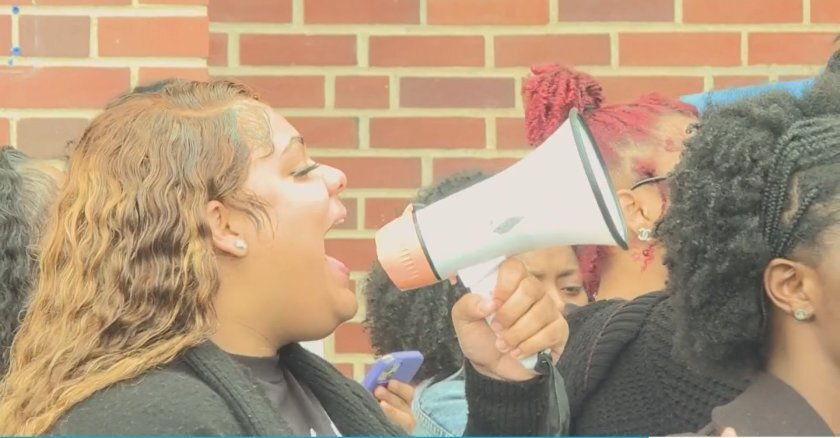The Pew study provides an important analysis of the national significance of these underappreciated but enormously important institutions. It, along with my perspectives as a student, faculty member and administrator at HBCUs, should provide valuable insights for public officials interested in higher education.
There are 107 HBCUs nationally, almost equally split between public and private institutions. Most are located in the South and were founded by formerly enslaved people and/or white benefactors after emancipation. Their importance and value to society is often overlooked, although they have graduated a disproportionate number of students who have gone on to become doctors, lawyers, engineers and national political and social leaders. According to a White House issues brief on the economics of HBCUs, while they make up less than 3 percent of all postsecondary institutions, they account for 8 percent of Black undergraduates and 13 percent of bachelor’s degrees earned by Black students.
In addition to Harris, many luminaries, including Martin Luther King Jr. and Thurgood Marshall, the first Black U.S. Supreme Court justice, graduated from HBCUs. But while the list of prestigious graduates is long, I believe the greatest value of these venerable institutions resides in their historic role of nurturing and educating ordinary students from underserved backgrounds — people like me —and preparing them to make important contributions to society.
How much longer this will be true is difficult to determine. Many HBCUs face funding obstacles and, of late, there have been too-frequent turnovers of leadership. The Pew study also presents data substantiating that historically Black colleges are seeing their non-Black student populations growing disproportionately. While Black student enrollment at HBCUs increased by 15 percent between 1976 and 2022, the population of white, Asian and Hispanic students at those institutions more than doubled, growing by 117 percent. Only 9 percent of Black students in college were enrolled at HBCUs as of 2022, compared to 18 percent in 1976. Pew reports that at eight HBCUs more than half of the student body was not Black. Lincoln University in Missouri, the first HBCU I attended, reported that 41 percent of its student body was white.
What happens to HBCUs if their student populations become more diverse — if they are no longer predominately Black? Will the historical and cultural significance of those institutions diminish? Will Black students miss out on something special that they previously received? My answer is that they may lose clear and unequivocal confirmation of the Black excellence that is real throughout society, but especially noticeable at HBCUs. At Lincoln University, I encountered Black intellectual geniuses for the first time. I experienced high-quality arts and cultural performances. I bathed in the love that professors and others extended to me. Above all, I heard counter-narratives and saw competing images to the era’s distorted media depictions of dumb, lazy and dangerous African Americans.
To be sure, I received an excellent education from predominantly white Emory University, where I earned my doctorate. But I had not discovered my “somebodiness” until the brilliant actor Ruby Dee pierced my soul with her dramatic enactment of a poem, The Somebodiness of Me, during my master’s degree commencement at Clark Atlanta University, one of the HBCUs that comprise the Atlanta University Center.
As the U.S. becomes more diverse, we need Black and other minority-serving institutions to do better than skimp along and barely survive. We must fund HBCUs like they matter. Certainly this means at least making them whole from their historical underfunding. According to federal data, between 1987 and 2020, Black land-grant institutions received about $12.6 billion less in state funding than they should have. I’ve argued previously that states should correct this wrong immediately, even if it means dipping into their rainy-day savings. With this long-overdue funding, HBCUs would be able to address long-standing maintenance problems and could upgrade their labs and facilities to make them state of the art.
And while states may not be able to do as much to address the needs of private HBCUs, it is worth noting that in a 2019 report the American Council on Education found that between 2003 and 2015, private HBCUs experienced the steepest declines in federal funding per student of any institutions of higher education. This happened when both Republicans and Democrats controlled the White House and Congress, including the period when Barack Obama was president.
The loss of funding and slowing Black student enrollment represent immediate threats to HBCUs, but the hostility that many of these institutions face at the hands of conservative politicians — the attacks on affirmative action, Black studies, and diversity, equity and inclusion initiatives — may represent an even greater danger. HBCUs developed competencies along the way to address many of these issues because white educational institutions neglected them. Public officials and leaders who claim to care about democracy and the role higher education plays in sustaining it cannot let these assaults continue.
If HBCUs are the national treasures that many claim they are, then we must treat — and fund — them as such. It will take more than lip service or electing an HBCU alumna as president of the United States. It will take all of us agreeing on the value of these institutions down through history, now and in the future, and making sure they thrive.
Governing’s opinion columns reflect the views of their authors and not necessarily those of Governing’s editors or management.
Related Articles














